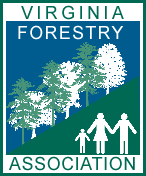Tree Information
Common Name: chestnut oak
Scientific Name: Quercus montana (syn. Quercus prinus)
Native/Naturalized: Native to Virginia
Database ID: 2564
Status: alive
National Champion: no
Virginia Champion: no
Trunk Girth: 198 in.
Tree Height: 111 ft.
Crown Spread: 73 ft.
Points: 327
Date Last Measured: 2025
Last Measured by: Vic Parkes, Bella Hardaway, and Eric Wiseman
Date First Measured: 2017
Comments:
2025 comments: De-throned as state co-champ. This tree continues to thrive in its location. There are no obvious indicators of stress or infection. The stem attachments are stable, but there is significant load on the clustered stem unions from the tremendous height and girth of the stems. The basal wrap circumference of the trunk at the narrowest girth below the forking of the trunk was 223" at 1.8' above ground at mid-slope. The composite circumference measurement of 198", which was used in the calculation of the final score, is comprised of the five stems measured individually at the lowest point above the bark inclusion. The NW stem was 97" at 7', the NE stem was 84" at 7', the SW stem was 96" at 4.9', the S stem was 93" at 6', and the SE stem was 69" at 7'. The height and crown spread were measured using remote methods due to dense vegetation and the steep slope.
2017 comments: This old-age tree is perfectly healthy. No known historic significance. Several other civil war age trees remain on undeveloped slope. Big northern red oak (ID 2053) is located nearby. Trees in this old-age forest remnant were large and old when they were cut – probably during the Civil War – and have since grown massive in size. The tree is hidden largely from view in an old-age remnant of Northern Coastal Plain / Piedmont Mesic Mixed Hardwood Forest: Fagus grandifolia - Quercus (alba, rubra) - Liriodendron tulipifera / (Ilex opaca var. opaca) / Polystichum acrostichoides Forest (USNVC: CEGL006075), which occupies the length of the ravine. Gigantic northern red oak (Quercus rubra), chestnut oak (Quercus montana), and tulip tree (Liriodendron tulipifera) comprise the lush canopy. Measurements by Rod Simmons, Greg Zell, and Robin Firth in 2017: 216", 120', & 83' for a score of 357 points.

Location of Tree
Tree is located in: City of Alexandria
Land Owner: St. Stephen's and St. Agnes Lower School
GPS Coordinates: 38.825271, -77.066555
Owner Email: info@sssas.org
Directions: Located on campus of St. Stephen's and St. Agnes Lower School (private). The tree is located on the steep, upper slope of a deep, cove-like ravine along the northeast edge of the property. The ravine was formed by an intermittent, spring-fed stream draining the eastern edge of the Beverley Hills terrace spanning the north boundary of the property from Woodland Terrace to Russell Road. Over millennia, the stream has cut down through the Mount Ida escarpment to impervious Potomac Formation clay along the stream bed. Numerous large, quartzite boulders, presumably relics of the terrace above, are scattered about the lower slopes and stream banks, along with small fragments of iron-conglomerate sandstone (“bog iron”).
Owner Address: 400 Fontaine Street
Alexandria, VA 22302
Contact Information
Contact Name: Rod Simmons
Contact Email: Rod.Simmons@alexandriava.gov
Contact Address: 2900-A Business Center Drive
Alexandria, VA 22314
Contact Phone: 703-930-8972
Nominators
Original Nominator(s): Rod Simmons and Greg Zell




